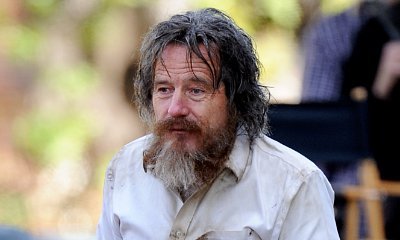
Bryan Cranston’s Howard Wakefield seems to have a great life. He is a successful New York City lawyer, is married to a loving wife, has two teenage girls, and owns the ideal house. However, problems do lurk beneath his psyche and, before we could even get to know him a little better, he decides to disappear from his own life. He hides in the attic, where his family never really cares to go, and observes how his loved ones deal with his disappearance.
Writer-director Robin Swicord isn’t interested in just the act itself, but more importantly in what led to it happening in the first place. Swicord adapts a short story by E.L. Doctorow into an original and thoughtful gem of a movie Wakefield.
While it’s not a reasonable and intelligent way to deal with life’s problems, walking away from it all is a feeling most have at least a few times in their life. It is a selfish act and Swicord goes to great lengths to tell us that Howard is a selfish person and that most of the problems he had in the first place had to do with this selfishness.

Howard’s rocky relationship with his wife Diana (Jennifer Garner) acts a as catalyst for the decision. While hiding, he observes her every move, trying to study her emotional state and if he really matters to her. When the family leaves for work and school he sneakily goes into the house and steals whatever food he can get without leaving a trace of suspicion — if there is time, he will even add in a shower.
By walking out on life, Howard becomes a street prowler, picking garbages for any food or clothes. As time passes, he starts to grow a beard, have torn-up clothes, and looks for heat in cold winter evenings. He even purposely passes by his wife in the neighborhood, but he has become so unrecognizable that she doesn’t turn back for a second to get a closer glimpse.
Swicord also adds a couple of flashbacks to try and show us what might have prompted Howard to pull the plug on his existence. Those scenes are somewhat strained compared to the present-day sequences involving the state Howard finds himself in which feel fresh and fascinating.

In fact, Wakefield would not be as fascinating if its central performance wasn’t as fully fleshed out as Cranston makes it. In the best performance of his career on the silver screen, it’s made even more impressive by the fact that he is mostly alone for the majority of the film, but what he does is never less than riveting. He infuses his character with humor, heartbreak, and scathing cynicism. His Howard Wakefield is not necessarily a man one is supposed to like and, in many ways, he represents a kind of anti-hero that not many actors could pull off.
Swicord, mostly known for her screenplays such as The Curious Case of Benjamin Button and Little Women, shows a surprising amount of restraint as compared to her previous works. Here she makes a film stripped of artifice designed to ponder deep, humane questions about existence. With an ending meant to spark debate and cause both anger and provocation in its audience, Wakefield fights formula and creates its own unique cinematic language.
Wakefield premiered at the Toronto International Film Festival.





